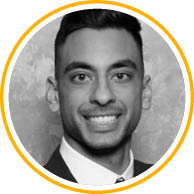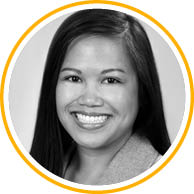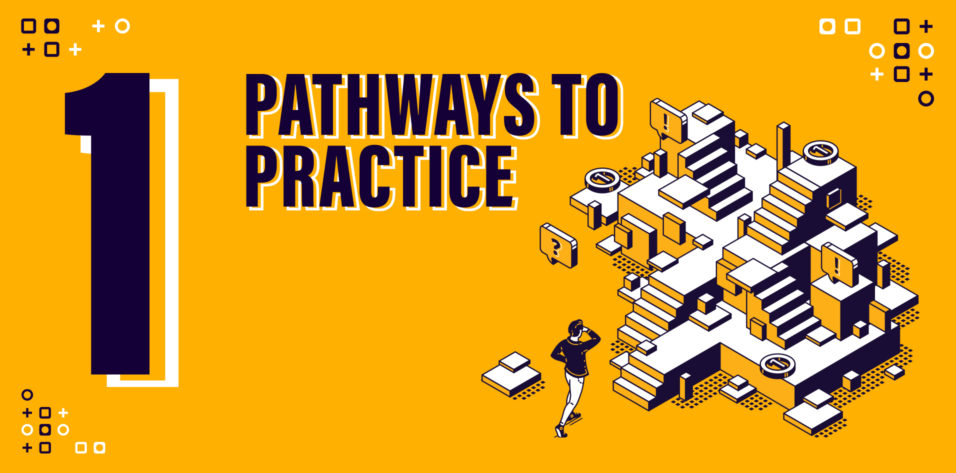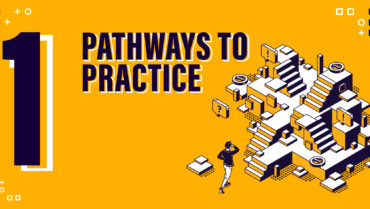
Bilal S. Ahmed, BS
“I like coming up with simple solutions to complex problems.”
When Gary Wörtz, MD, said that to me as we moved from one OR to the next, I couldn’t help but notice the ease with which he seamlessly glided like clockwork from one cataract case to the next. In April, a few weeks prior to this conversation, I, like other medical students around the country, had been sent home from rotations due to COVID-19 and was left confused about my best next steps. Intending to pursue a residency in ophthalmology but with no home department at the University of Toledo College of Medicine, I wondered if there were any podcasts I could use to learn more about the specialty in this period of downtime.
As fate would have it, I found Ophthalmology off the Grid, hosted by none other than Dr. Wörtz. Curiosity got the best of me as I listened to his discussions with leaders in the field, so I joined Twitter and tried to learn more about the ophthalmology community through social media. This powerful community stood out to me as a field of medicine that represents and places value in inclusion and creativity. Dr. Wörtz and others were actively discussing how the pandemic was shaping the future of their profession, and I wanted to be part of the conversation to learn everything I could. I took a chance and sent him a direct message on Twitter, introducing myself and sharing that I am a fellow Kentuckian. I was thrilled to get a swift and kind reply from Dr. Wörtz with an invitation to come to Lexington and spend a day observing him.
While shadowing Dr. Wörtz, the conversations we had stuck with me as I tried to absorb every bit of advice I could get. Having just launched my own podcast and YouTube channel for my community of aspiring ophthalmologists, I was eager to discuss what it means to be a good host and how making people feel welcome in your presence is the key to establishing connections. Dr. Wörtz and I had lunch and chatted about our lives and our backgrounds. A previous guest on my program, Ross Lakhanpal, MD, FACS, told me that being a good mentor is about being approachable and accessible. That day with Dr. Wörtz and our chats since have illustrated how he fits the criteria of a great mentor. We can all help shape those who look up to us by making them feel welcomed into our dialogues; whether you are a podcast host or not, helping others feel comfortable doesn’t have to be complex, so make it feel simple.

Jenny Camia, BS, MS
I first met Sahar Bedrood, MD, PhD, at the Women in Medicine Breakfast With the Experts table during the 2019 MillennialEYE Live conference in Louisville, Kentucky. Dr. Bedrood’s story of grit during her fellowship training gave me a glimpse of the amazing amount of determination she possesses. I found her email in the ME Live meeting app and decided to reach out. Dr. Bedrood responded to my email quickly and had no reservations about me traveling from Virginia to observe her in California. My school was in agreement and, due to COVID-19, provided ample N95 masks and other PPE for my rotations.
While observing Dr. Bedrood, it was clear that her first priority was the patient and her second priority was her passion for teaching. With permission from the patient, I was able to look into the teaching scope as she guided me through the slit-lamp examination. Dr. Bedrood also enabled me to perform dilated fundus examinations on her willing patients. Because she is a subspecialist with advanced training in glaucoma, I was fortunate to watch her perform endoscopic cyclophotocoagulation and MIGS procedures. Each day with Dr. Bedrood was not complete without a bit of questioning to see how I would think through a case; I admired her commitment to helping her students learn, improve, and take pride in their work.
My one piece of advice to other medical students who are interested in a particular specialty is to recognize that obstacles are part of the journey. Whether it is due to a physician not responding to your email or to a scheduling conflict, remember to keep your perseverance and navigate through each hurdle with patience. Always keep emails professional and wait a courteous couple of days before emailing the same physician again. Like many fourth-year medical students, I lost multiple ophthalmology auditions due to COVID-19, but I kept searching. I found Dr. Bedrood, my new mentor, and in turn was provided with an unforgettable and rewarding experience. Fear regret more than failure.


